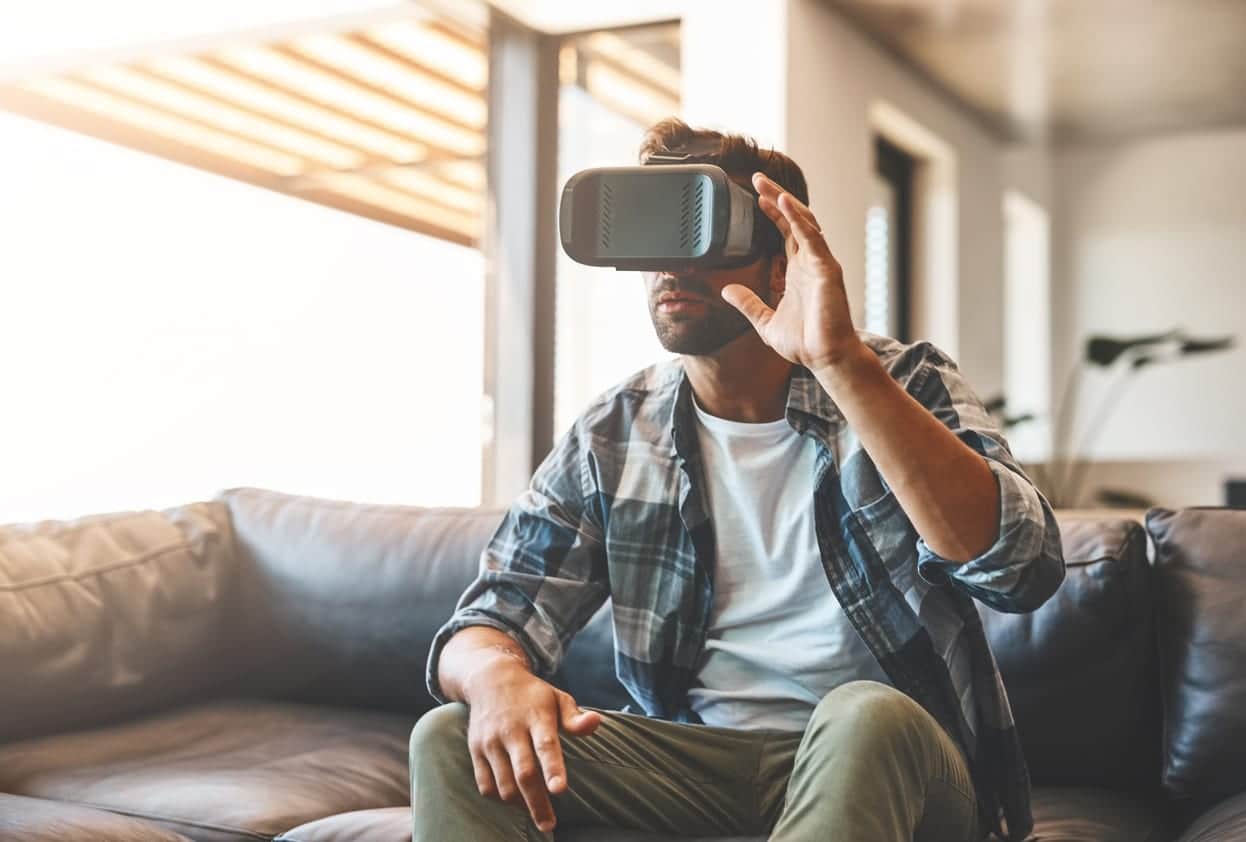Tips for Mixed Reality in Retail
How retailers are turning to virtual reality, augmented reality, and mixed reality applications to recreate the in-store experience from anywhere.

Offline retail has peaked and may not reach 2019’s level for another four years – and some estimates say it may never bounce back. Advancements in virtual and mixed reality are bridging the gap, making it possible to put any product in any room.
In addition to replicating the experience of talking to an expert sales associate, retailers are also turning to virtual reality, augmented reality, and mixed reality applications to recreate the in-store experience from a customer’s mobile device. Many brands have started to build these capabilities into their apps and sites, but these technologies are becoming more and more important for shoppers trying to figure out what to buy from the online catalog.
With advances in 3D scanning on smartphones, accuracy for these experiences is better than ever. Customers can see furniture and home goods as they’d appear in their offices and homes or clothing and accessories as they’d look in a virtual dressing room.
Italian luxury brand Bulgari launched a virtual store in Singapore to bring the exclusive, boutique in-store experience online and is quickly adding similar offerings in other markets. Shoppers can see 3D product shots, reach out to an “e-concierge team” and even scale Bulgari bags to match a real-world environment.

Warby Parker’s Virtual Try-On app lets customers try various frames and styles without having to go into the store.
Direct-to-consumer eyewear brand Warby Parker’s popular Virtual Try-On app lets customers try various frames and styles. After a quick face-scan, customers can try on frames and see how they’d look from any angle.
Here are two quick tips on making mixed reality a part of your mix:
Extend the virtual into actual.
Don’t just replicate the in-store experience, make it ever more special, more premium. Bulgari uses special packaging and wrapping options for purchases specifically from its virtual shop so the experience conveys the virtual luxury to the actual package that’s delivered to their door.
Integrate with the customer journey.
Any virtual or mixed reality experience shouldn’t be an isolated experience. Customers should be able to move from product catalog to a fitting room or “see how it looks” experience and back to the purchasing flow without missing a beat.
Experiences should be able to connect the dots between every interaction by capturing signals from customer behavior and applying those insights across every channel, in real-time. Retailers that invest in connecting digital experiences across store, site, app, purchase, delivery, and support will be able to ride out the next waves and win loyal customers. Check out this blog for more tips: “3 Keys to Livestreaming for Your Global Shoppers.”
LEARN MORE
Contact us today to learn how Lucidworks can help your team create powerful search and discovery applications for your customers and employees.